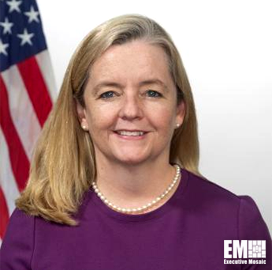The General Services Administration has partnered with the office of public information and education within the U.S. Library of Congress’ copyright office to help PIO modernize its contact center through GSA’s Centers of Excellence program.
“The modernization of the federal government’s IT infrastructure and applications is an important priority for GSA,” said FAS commissioner Julie Dunne. “The Centers of Excellence are a cornerstone in our IT modernization work at the Federal Acquisition Service.”
The copyright office and GSA will identify gaps in contact center technology and service delivery at PIO, which answers the public’s inquiries about registration policies and other processes related to copyright, GSA said Friday.
“This Contact Center modernization effort reflects our partner’s commitment to their customers as the Contact Center CoE prioritizes access to consistent and accurate information in a timely manner,” said Bob De Luca, acting deputy commissioner at FAS and director of GSA’s Technology Transformation Services.
Other agencies partnering with GSA to advance IT modernization efforts through the CoE initiative are the departments of Agriculture and Housing and Urban Development, the Pentagon’s Joint Artificial Intelligence Center and the Department of Labor.






